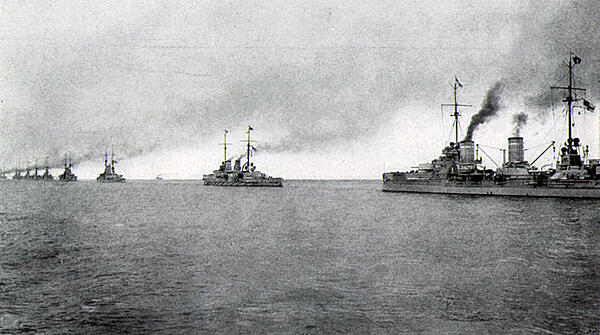Causes of World War One
It’s difficult to pinpoint an exact cause of World War One, but it is arguably fair to say that the Great War resulted from a complex mix of long-term issues and tensions that were eventually triggered by a 'final straw'.
Historically, Germany has taken the blame for starting the First World War, but it’s fair to say that tempers were already fraying across Europe. Issues such as imperial rivalry, an ongoing arms race and growing nationalism, combined with an increasing number of alliances, are all thought to have impacted on relationships.

Alliances
Alliances were signed by many countries between 1879 and 1914, which subsequently created rivalries between each country and their new ally’s enemies. Additionally, these new alliances meant many European countries were legally and morally obliged to declare war on another nation if their ally had done so.
By the start of the war there were two main alliances:
- The Triple Alliance - Germany, Italy and Austria-Hungary
This alliance was signed in 1882 and confirmed that each country was committed to providing military support to its allies and any future signatories. This was largely fuelled by negative feeling towards France and Russia, but was also a tactical move put in place to ensure Italy remained on side.
- The Triple Entente - Britain, France and Russia
This alliance was signed in 1907 and was considered more of a ‘friendly alliance’ rather than a military alliance. However, it still confirmed allegiance from each nation towards the other two, and provided a strong counter league should the increasing threat of Germany translate into war.
Arguably, the alliances did not make it inevitable that war would take place, but the secrecy that surrounded them certainly added to the tensions across the continent. Additionally, they did tie each country into war should their allies declare it, which meant any war threat would spiral rapidly.
Imperialism
There were, of course, other issues that led to war, such as imperialism. Britain was a significant imperial power at the start of the 20th Century, owning around a quarter of the world. However, other powers in Europe were enjoying the fruits of the Industrial Revolution just as Britain was, so they wanted to expand themselves to ensure they had the space to capitalise on this new technology.
Germany was one country that owned relatively little land, having only really colonised a small area of southern Africa without a lot of economic value. Meanwhile, Britain had colonised the nearby South Africa, which contained huge diamond and gold reserves. Naturally, this led to rising tensions between the two nations.
Militarism
Militarism was fuelled by strong nationalism and patriotism, which also led to arms races between the major nations. Britain was particularly concerned about the rapid growth of Germany’s navy, which was seen as a great threat to the country.
These concerns rapidly translated into a Naval Race, with both countries spending huge amounts of money designing and producing warships. Costs spiralled when Britain launched a new battleship known as the Dreadnought, but this was met very quickly by a German equivalent. Of course, this only boosted tensions and this increasing divide between Britain and Germany required only a small trigger before it ignited a war. This trigger came in the form of an incident at Sarajevo in July 1914.
MLA Citation/Reference
"Causes of World War One". HistoryLearning.com. 2024. Web.
